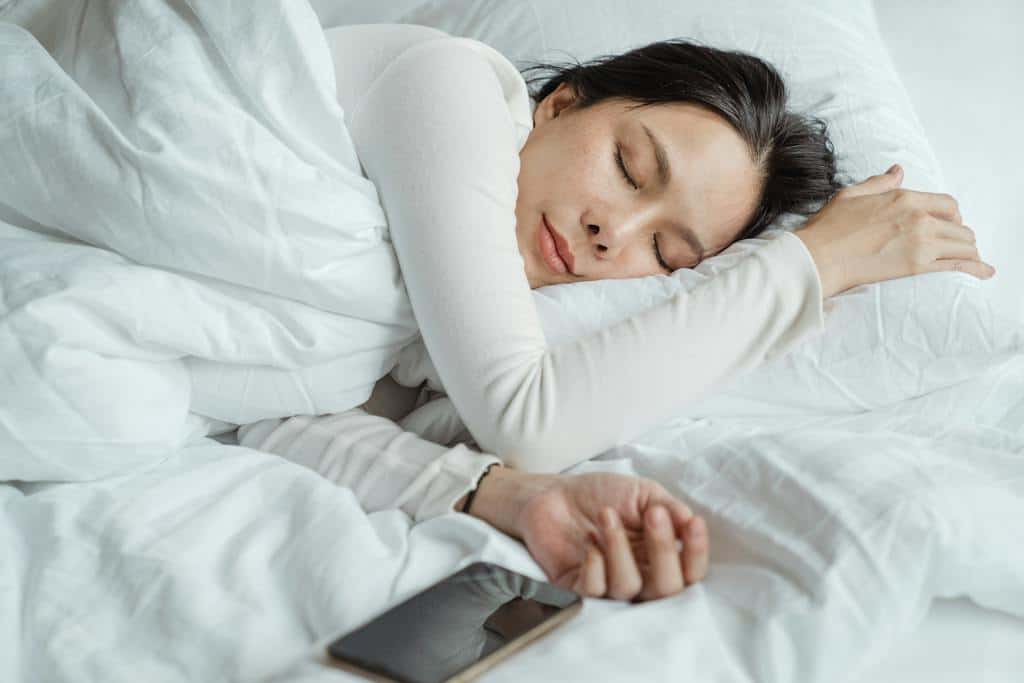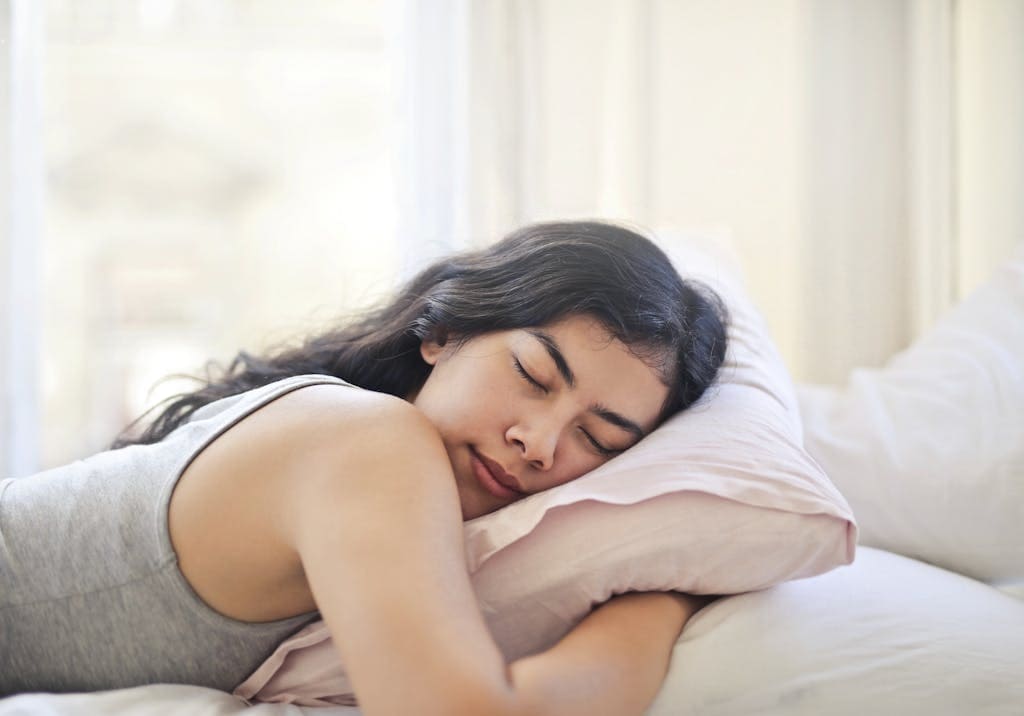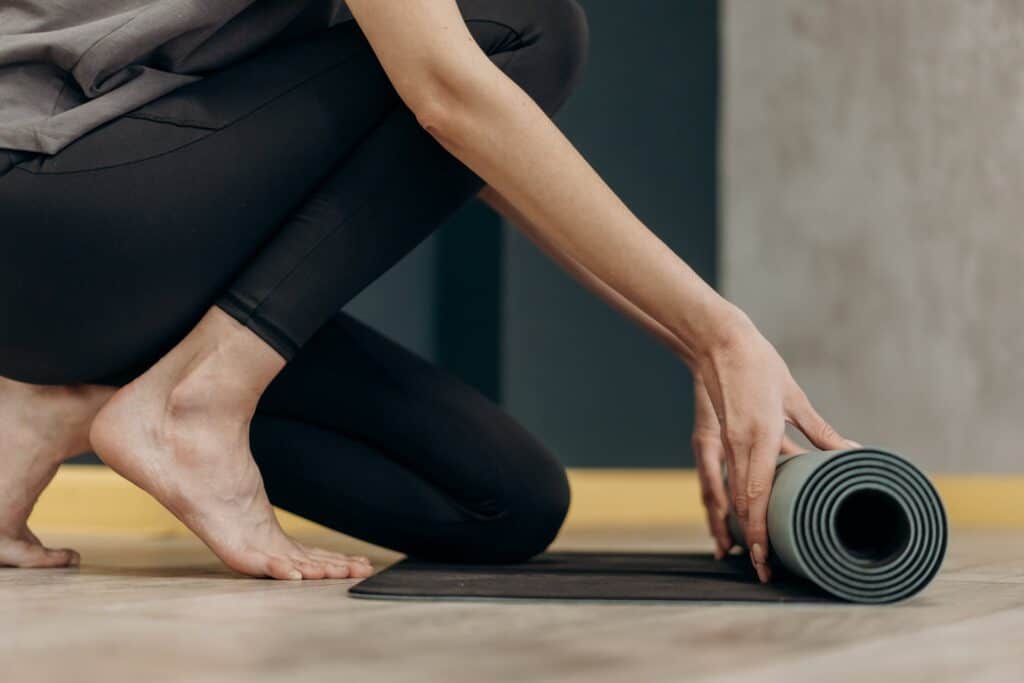10 Strategies for Finally Getting a Good Night’s Sleep
It just never seems like the to-do list gets any shorter these days. Stress has become a normalized part of our lives as we struggle to stay on top of work, health, fun, family, and the pressure to show up perfectly in every space. With all these things on our to do lists, how do we even think about getting a good night’s sleep?
From work pressures to personal responsibilities, it’s easy to feel overwhelmed, leading to disrupted sleep patterns and difficulty in achieving a good night’s sleep. Unfortunately, not getting a good night’s sleep can begin to affect other parts of your life and ultimately cause you to slow down even when you don’t want to.

How to Start Getting a Good Night’s Sleep
Prioritizing both distressing techniques and healthy sleep habits can significantly improve overall well-being and sleep. Let’s explore a variety of strategies to help you unwind and ensure a restful night’s sleep.
Establish a Relaxing Bedtime Routine
Creating a consistent bedtime routine signals to your body that it’s time to wind down and prepare for sleep. This routine can include activities such as reading a book, taking a warm bath, practicing gentle yoga or meditation, or listening to calming music.
What this should not include is Youtube or TikTok…I know this is a challenge. Avoid screens at least an hour before bedtime, as the blue light emitted by electronic devices can disrupt your body’s natural sleep-wake cycle.

Practice Mindfulness and Meditation
Mindfulness and meditation techniques can be powerful tools for managing stress and promoting relaxation. Dedicate a few minutes each day to mindfulness practices such as deep breathing exercises or guided meditation. These practices can help quiet the mind, reduce racing thoughts, and promote a sense of calmness conducive to a good night’s sleep.
If you’re new to meditation, the Calm app is a great place to start for guided practice that can make you feel more comfortable in silence.
Limit Caffeine and Alcohol Consumption

While caffeine can provide a temporary energy boost, consuming it too close to bedtime can interfere with your ability to fall asleep. Similarly, while alcohol may initially make you feel drowsy, it can disrupt your sleep cycle, leading to fragmented and restless sleep. Aim to limit caffeine intake to the morning hours and avoid alcohol consumption close to bedtime.
All things are fine in moderation, but disrupting your sleep with these habits frequently may be the reason why you wake up still drowsy.
Create a Comfortable Sleep Environment
Your sleep environment plays a crucial role in the quality of your rest. Ensure that your bedroom is cool, dark, and quiet, and invest in a comfortable mattress and pillows that provide adequate support. Consider using blackout curtains, white noise machines, or earplugs to minimize disruptions and create an optimal sleep environment.
Engage in Regular Exercise

Regular physical activity has been shown to reduce stress, improve mood, and promote better sleep. Aim for at least 30 minutes of moderate exercise most days of the week, but be mindful of timing. While exercise can boost energy levels during the day, vigorous activity close to bedtime may have the opposite effect. Try to finish your workout at least a few hours before bedtime to allow your body time to wind down.
Practice Progressive Muscle Relaxation
Progressive muscle relaxation is a technique that involves tensing and then relaxing different muscle groups in the body, promoting physical and mental relaxation. Start by tensing the muscles in your toes and gradually work your way up to your head, focusing on each muscle group for a few seconds before releasing the tension. This practice can help relieve physical tension and promote a sense of calmness conducive to sleep.
The next step in your sleep journey…crafting the perfect morning routine!
Limit Exposure to Stressful Stimuli
In today’s digital age, we are constantly bombarded with information and stimuli that can contribute to stress and anxiety. Set boundaries around your exposure to news, social media, and other potentially stressful stimuli, especially in the hours leading up to bedtime. Instead, engage in activities that promote relaxation and calmness, such as reading a book, practicing a hobby, or spending time with loved ones.
Use settings on your phone to mute work-related apps and messages while you’re not at the office. Your personal and work life should be separated as best as possible to avoid stress from work bleeding into your time at home.
Seek Social Support
Building and maintaining strong social connections can provide a valuable source of support during times of stress. Reach out to friends, family members, or support groups for emotional support and companionship. Sharing your feelings and experiences with others can help alleviate stress and foster a sense of belonging and connection.
Chances are someone else has felt or is feeling the same as you in their current situation. You can share coping strategies and bounce ideas around of how to manage stress and set yourself up for a more relaxed future.
Practice Gratitude and Positive Thinking
Cultivating a mindset of gratitude and positivity can help shift your focus away from stressors and promote a sense of well-being. Take a few moments each day to reflect on things you’re grateful for, whether it’s small moments of joy or the support of loved ones. Incorporate positive affirmations or journaling into your daily routine to reinforce a positive mindset and reduce stress levels.
Seek Professional Help if Needed
If stress and sleep difficulties persist despite your efforts to manage them, don’t hesitate to seek professional help. A therapist or counselor can provide valuable support and guidance in developing coping strategies for managing stress and improving sleep quality. Additionally, a healthcare provider can evaluate for any underlying medical conditions that may be contributing to sleep disturbances and recommend appropriate treatment options.
Prioritizing destressing techniques and healthy sleep habits is essential for maintaining overall well-being and quality of life. By incorporating the strategies outlined in this article into your daily routine, you can try to manage stress, promote relaxation, and achieve a restful night’s sleep. Remember that finding what works best for you may require some experimentation, so be patient and persistent in your efforts to prioritize self-care and sleep hygiene.
Simplified Summary
Stress relieving techniques and healthy sleep habits are essential for your well being. Exercising limiting screens can help you sleep better at night






